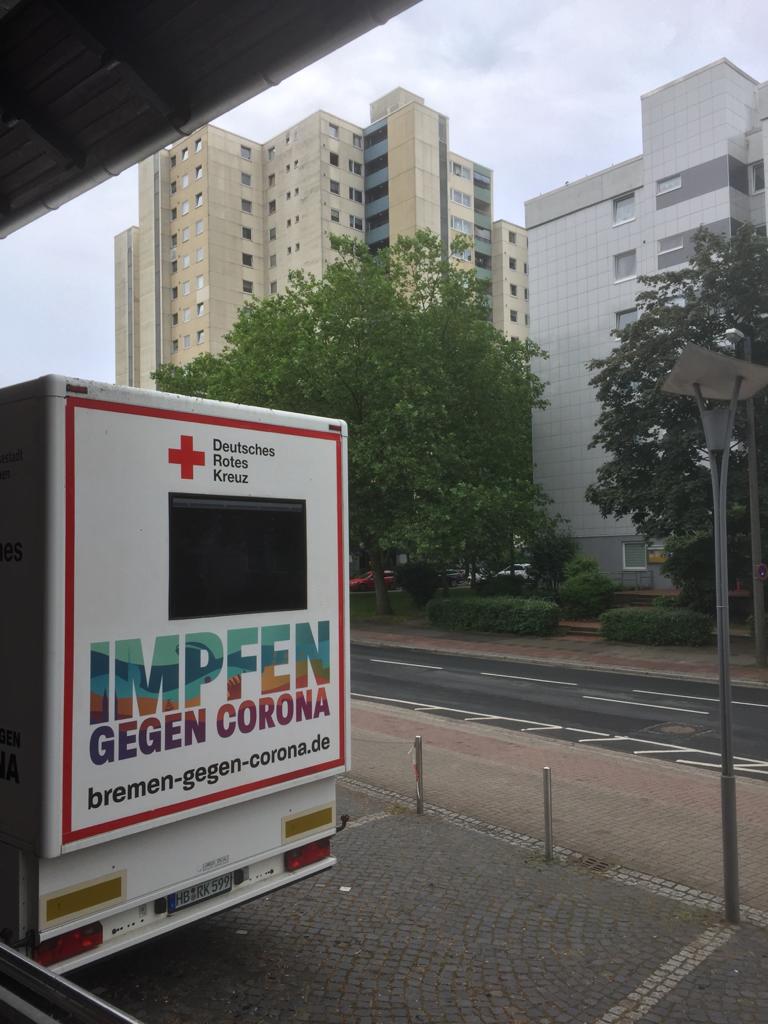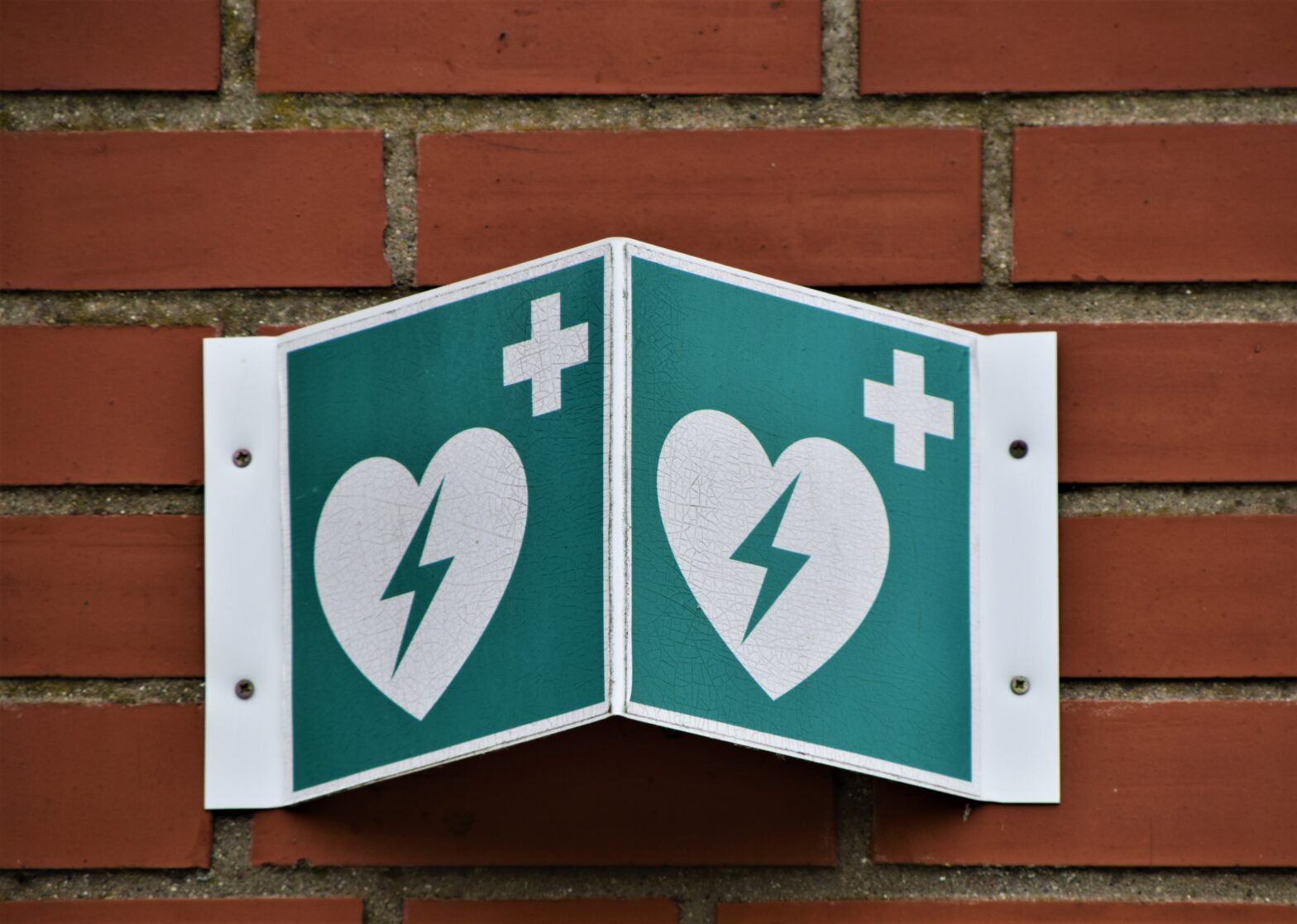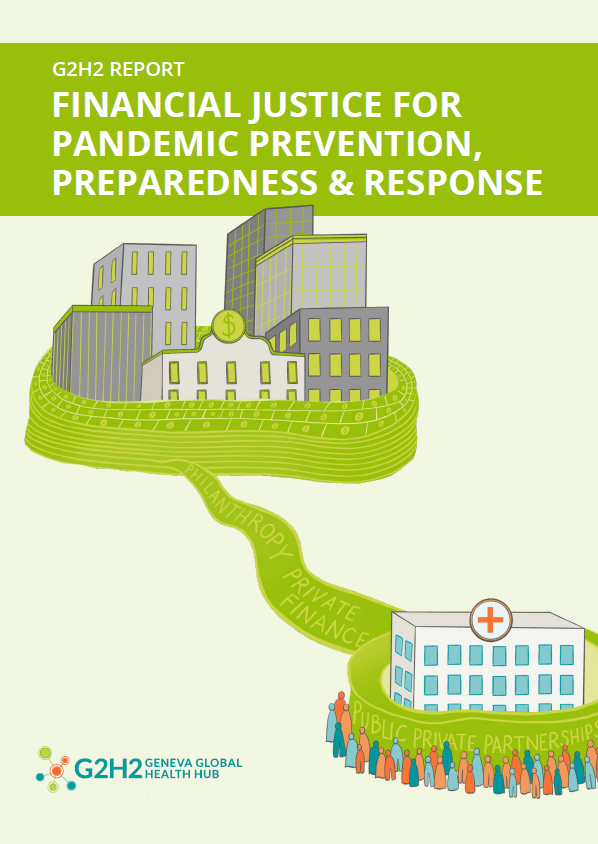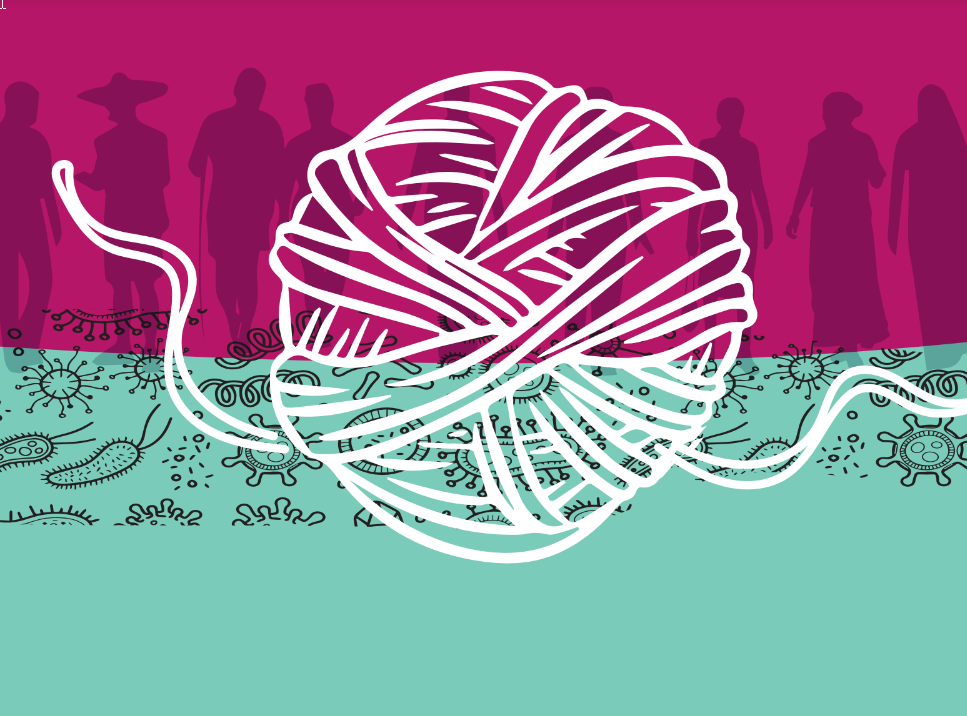Share Twitter Facebook Email Copy URL
Interview with Claudia Bernhard (LEFT party/DIE LINKE) Senator for Health Women and Consumer Protection in Bremen since 2019
“There are still many people who have not found access to vaccinations and as long as not every effort has been made to provide access to all people, mandatory vaccination is not helpful”

Berit Köhler: The demand for mandatory vaccination has just been decided by the leadership of the LEFT party. There is a lot of argumentation in this context that everyone who wanted to be vaccinated could have done so. What do you think about that?
Claudia Bernhard: It is simply not true that all those who have not been vaccinated so far are vaccination refusers or vaccination opponents. Access to vaccinations is a profoundly social issue. In other words, it must be ensured that all people actually know how, where and when they can get a vaccination. They must be able to discuss their fears and concerns. Although we have already reached many people in Bremen, we still notice that there are many people who say that they have not yet had the opportunity to be vaccinated. We have to take that seriously. We still have to reach all of those people, and we still haven’t fully explored that.
Multilingualism, the way we address people, the personal explanation, that is something we absolutely have to establish, especially for groups that are difficult to reach. It is now particularly visible in the case of vaccination, but in the context of the entire health care system, this is one of the essential points and fundamentally a huge problem. It is not helpful to say that we now want to force people to be vaccinated, even though a not inconsiderable number have not yet had the opportunity or have not found access for various reasons. Especially as the LEFT party, we have to say that solidarity-based vaccination services are the most important thing we have to take care of at the moment.
BK: With over 80% of people fully vaccinated, Bremen has the highest vaccination rate in Germany. How did you achieve this and what could other federal states learn from it?
CB: We provided information very early, very comprehensively and in several languages right from the start. The vaccination centre was set up quickly and in a good way. Personal letters were sent to all Bremen residents. The call centre was functional, there were no queues. We had advertisements for vaccination on trams and billboards. But the outreach and the mobile vaccination teams in the city districts are particularly important and successful.
We have been doing health reporting in Bremen for a long time and know that the distribution of diseases, life expectancy, but also GP care strongly depends on the social conditions in the city districts. We looked at the incidence rates in the various districts of Bremen very early on. This can be done quite well via the public health department. If the areas are relatively small, then you have to observe minimum sizes in order to comply with data protection. But we were able to cluster the data into postcode areas or into city districts. We clearly noticed that in the poorer parts of the city, the incidences skyrocketed.
This was a critical point for us in the campaign. In the first wave, it was the other way round: the better-off neighbourhoods had the higher incidence, because of the people returning from their travels. But in the second wave, it was clearly the poorer districts that were most affected, the connection with housing and employment conditions was evident. Then there were also the objections: Can we really publish this? Doesn’t that lead to the stigmatisation of the poorer districts? But for me it was clear: this information must be made public, it must be commented on in solidarity, and we must react to it immediately with appropriate offers. That also triggered a discussion.
BK: In Bremen, did you already have this access and knowledge of the necessity beforehand or did you create it now during the pandemic?
CB: We already had the health reporting and the results that these differences do exist available. We have been talking about this for a long time and it has always been flanked by projects and district programmes. Sending health workers into the neighbourhoods is a relatively new development. We had already had prevention workers here and there, for example at schools. But we have only had specific health workers in the last one or two years. We have now increased their numbers in the neighbourhoods and have sent additional staff to the neighbourhoods.
BK: How did you find these health workers and what qualifications did they have to have?
CB: They are partly people from health professions who have agreed to work with us. Others are people who come from the neighbourhoods themselves. We have had a municipal programme for neighbourhoods called “Living in Neighbourhoods” for 20 to 25 years, i.e. there is a certain social network. And from this programme, people with the appropriate qualifications have agreed to take on these positions.
BK: Did they receive training?
CB: There was training by the health department. The health workers have to be able to answer specific questions about vaccinations. What does the vaccine do? What does it consist of? What happens in the body? And the like. This basic knowledge is also shared again and again. We also have a hotline that answers all these technical questions.
BK: And then the health workers went to the neighbourhoods. Did they do special activities there or how should I imagine that?
CB: They are anchored in the neighbourhood offices and have their workplace there. Their counselling services are located where our neighbourhood management is based.
BK: So is it a bit of a “come and see” structure, or do the experts also go to community events and the like?
CB: No, they also go to the farmers’ market, to day-care centres and schools, and they are present when the vaccination bus is on the road. When in-patient services are offered, they do so together with the day-care centre and school administrators. They are also on-site when the vaccination starts. That happens together. Furthermore, we have experienced that access via families and communities is very important. Visiting the communities and the existing meeting places and organising information evenings is very helpful.
When we started offering in-patient vaccination services in schools and day-care centres in the neighbourhoods, there was criticism that only those with children would get the service. We communicated very clearly that the offer is for everyone who lives in the district. This spread like wildfire. When we pitched our tents, it was like a self-runner.
And importantly, we always had multilingual people in the respective wards, even among those who were vaccinating. Of course, this is challenging for staff recruitment. It’s not easy to manage all that. But to say that it won’t work anyway, seems wrong to me.
We also received a lot of self-initiative from the neighbourhoods. There were rap groups from Tenever that provided vaccination songs. We produced and disseminated videos with multipliers from the various social groups. Until now, we have noticed that where we lack mediators to the individual communities, it is also more difficult to vaccinate.
Maintaining all this is not that easy either, it’s true. But it is something that we have to consolidate in the long term. And another thing that is important to me is that we have to continue this beyond the pandemic. For example, we now have a vaccination centre in Bremen North. Bremen North is really not a rich district, rather the exact opposite. And I really have to say that it’s a really good location. We should perhaps consider institutionalising these centres in general, as a contact point for vaccinations but also for other consultations. In other words, we should actually think about not just folding everything up again once we’re through, i.e. after the “end of the pandemic”, but think about whether something like this should be maintained permanently.
BK: So as a kind of district health centre?
CB: Yes, exactly.
BK: Applying this to rural areas, it occurs to me that the Robert Koch Institute (RKI), for example, describes in a report that it is more difficult to reach out to villages with fewer than 2,000 inhabitants for vaccinations. Do you think it would be a possibility to consider who is trusted in the village, e.g. shooting club, voluntary fire brigade, church, sports club, day-care centre, etc.? And to try to build up a similar structure with them as the one that worked well for you in the neighbourhoods?
CB: Yes, that is precisely what it would be. That’s why I found it significant that Rhineland-Palatinate, for example, says they don’t have the staff to vaccinate in the area. That also reflects a basic problem. In rural areas in particular, the number of general practitioners is far too low and cannot compensate for this. At the same time, we have the centralisation of hospitals, etc., and this is also not compensated for by regional health centres on the ground. There are municipalities in the territorial states that still do not have any accessible vaccination services.
In addition, we need information everywhere on the ground; a lot of information and communication. That is the A and O. It may not work the first time or the fifth time, but by the tenth time something will have stuck. And particularly from a left-wing position, it would be so important to have such conviction right from the start.
The multipliers that are needed are, of course, different in a rural state or in rural regions than in a city state. It might not be the mosque or the Turkish cultural association, but the shooting club, the football clubs, the ADAC, the churches, the kiosks or the restaurants. The basic formula is: you have to find “vaccination mediators” in all communities where you want to convince people to vaccinate. We will not convince everyone, that is clear. But we will convince a large part of those who have not yet been reached.
BK: You also take part in the meetings of the health ministers. Do the ministers have any ideas on how to solve the structural problems, e.g. the lack of staff to carry out vaccinations in the countryside? If mandatory vaccination is supposed to increase the vaccination rate, there must also be ideas on how to reach those people who have not had access to it so far. The problem does not disappear because fines are to be paid for mandatory vaccination. Are there any discussions about the structural problems?
CB: No, not at all, and I find that rather strange. Maybe I didn’t demand it enough, I have to say. But Bremen, as a small federal state, is not really taken seriously. The territorial states predominantly set the tone. Apart from that, the discussion was on very operational questions, i.e. when will the vaccine be available, what are the supply lists, which vaccine can I use for whom, what is the age group, what is the official approval, etc.?
Everyone is in a tunnel – a problem-solving tunnel. There is only week-to-week thinking and that’s it.
A common vaccination strategy and the question of how to get people to be vaccinated in the long term was never at the centre of any discussion. Everyone is now talking about the obligation of people to get vaccinated. But nobody talks about the obligation of the state to make vaccination possible, also by addressing the specific obstacles and reservations.
BK: That is really astonishing. Right now, people are queuing up in long lines to access the open vaccination services in many regions, and some of them have to leave without having been vaccinated. A mandatory vaccination does not really help. This is a shift of responsibility to the individual, whereas it should actually be the state’s duty to provide the necessary services.
CB: Yes, this does not work at all. Everybody wants to increase the vaccination rates, but the services have definitely deteriorated. I can hardly find staff for my vaccination centres and the vaccine is already in short supply again. We have an unbelievable bow wave now, because all 18+ year olds are coming to boosters at once. And while people are piling up in the streets to say that mandatory vaccination is the appropriate remedy is paradoxical. But that fits with the decision to end the epidemic emergency while we have the biggest incidences ever. Nobody understands that. And yet it has a high approval potential, because people supposedly expect a solution from it. Because people are tired of having to patiently explain and justify everything.
BK: Maybe this will have a small effect, because people who have said for a long time that they don’t want to be vaccinated will now have a reason to do so because of the obligation. Nevertheless, a mandatory vaccination will probably encourage just as many people to get a forged vaccination card.
Yes, that is exactly what is happening now. On the one hand, we are seeing a new influx of first-time vaccinations. Those who are undecided, who wanted to wait longer or who simply thought in this summer that they might not need it now are responding to the pressure of 3G at work and 2G for events and restaurants. On the other hand, the fronts are hardening and the trade in fake vaccination cards is growing by leaps and bounds.
I think it is important to emphasise once again: The 81% vaccination rate that we have achieved refers to the entire population – including children, whom we cannot yet vaccinate. Among adults, we have a rate of over 93% who are fully vaccinated and 97% who have at least a primary vaccination. When the more conventional vaccines are approved in the near future, that will also have a positive effect. So it is possible to get very close to 100 percent even without mandatory vaccination.
BK: The problem of availability is not being solved. And while mandatory vaccination is being introduced here, Germany and the EU are simultaneously preventing the suspension of patents for the vaccines during the pandemic. Although it is clear to everyone that without vaccination we will not get out of the pandemic, neither locally nor globally, the necessary structural solutions are being ignored or prevented.
CB: It is even worse. Germany is currently not even fulfilling its supply commitments under COVAX. The EU has made contracts with the pharmaceutical companies that allow them to demand extreme surcharges when vaccines are supplied to emerging and developing countries. Non-solidarity has practically been written into the contracts.
This gives the impression that Germany needs to introduce mandatory vaccination because the sufficient supply of vaccines is not appreciated and accepted here, while the rest of the world would be happy to have more vaccines. Which, if you look closely, is not true. Instead, we are not making enough effort to reach these 25-30% in all federal states and make vaccination accessible to those who simply do not come on their own.
BK: In Bremen, you’ve always done things differently from the other federal states, and you’ve undoubtedly been successful. It’s a great opportunity to look at best practice examples and ask yourself what are they doing differently from me and what can I learn from them. I don’t understand why this is happening so rarely.
CB: I’m always told that the city state has a certain advantage – yes, it does. But that doesn’t absolve the other states from thinking about how we can ensure that everyone gets vaccinated. I think it’ s a great pity. Mandatory vaccination is a demand that won’t get us anywhere. There are many reasons why people have reservations or have not been vaccinated so far. But we have not yet reflected enough on this. And the most important thing about all this is that it is not an ad hoc problem-solving tool. Now that we know vaccination will keep coming – we are not done with two times and we probably won’t be done with three times – we will basically have to start the vaccination campaign again every year. We are not asking for a one-time vaccination, but for people to be willing to also receive the adaptation vaccination for the next virus variant. That is indeed a high hurdle.
We need to work on this issue in the long term, there is no other way. And I also see this as a social issue: how to open up access and create a material basis for this, and not retreat to the legal obligation.
Berit Köhler is a health scientist and has worked for many years for the LEFT parliamentary group in the parliament in Hamburg. She collaborates together with Jan van Aken with the Geneva office of the Rosa Luxemburg Foundation in a project on " Global Health".



